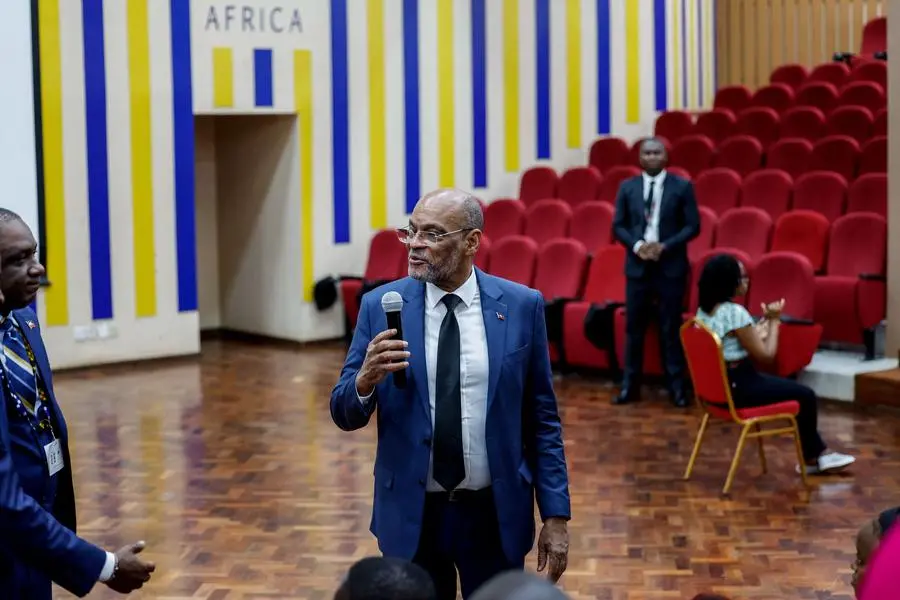PHOTO
Kenya and Haiti signed a "reciprocal" agreement on Friday to deploy police from the East African country to lead a UN-backed law and order mission in the gang-plagued Caribbean nation, Kenyan President William Ruto said.
Ruto said he and Haitian Prime Minister Ariel Henry had "discussed the next steps to enable the fast-tracking of the deployment", but it was not immediately clear whether the agreement would counter a court ruling in January that branded the deployment "illegal".
Kenya had previously said that it was ready to provide up to 1,000 personnel, an offer welcomed by the United States and other nations that had ruled out putting their own forces on the ground.
But a Nairobi court said the decision was unconstitutional, in part because the two countries had not signed a reciprocal agreement on the issue.
On Friday, Ruto said he and Henry had "witnessed the signing" of a reciprocal agreement in Kenya's capital Nairobi.
"I take this opportunity to reiterate Kenya's commitment to contribute to the success of this multi-national mission. We believe this is a historic duty because peace in Haiti is good for the world as a whole," Ruto said in a statement.
The UN Security Council approved the mission in early October but concerns in Kenya over Nairobi's involvement prompted a court challenge.
The ruling threw into doubt the future of a multinational force long sought by Haiti's government, which has pleaded for international help to confront violence that has left nearly 5,000 dead.
Opposition politician Ekuru Aukot, who had filed the petition against the deployment, told AFP on Friday that he would lodge a case "for contempt of court".
"We will question the validity of this secretive agreement," he said.
Haiti, the Western hemisphere's poorest nation, has been in turmoil for years, with armed gangs taking over parts of the country and unleashing brutal violence, leaving the economy and public health system in tatters.




















